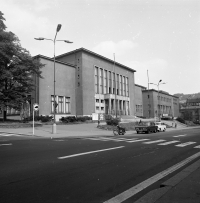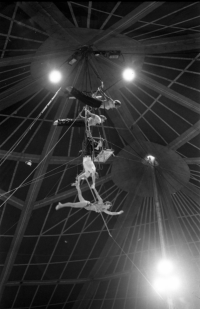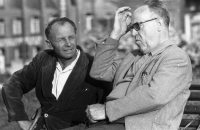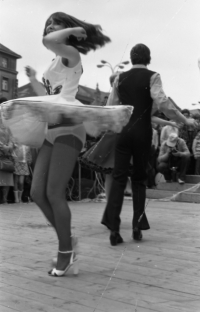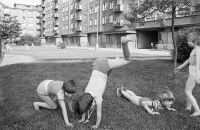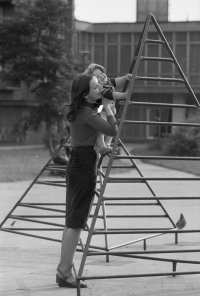Today I know that going back to Czechoslovakia was the biggest mistake of my life.
Download image
Viktor Bejbl was born on 13 March 1946 in Ústí nad Labem to a single mother, Maria Bejbl. He never knew his father and his upbringing was taken care of by his mother’s parents, Antonín and Marie Bejbl. With his grandfather’s help he managed to get into the Secondary Vocational School of the North Bohemian Armaturka in Krupka. Although he did not enjoy his studies, he finished the apprenticeship and eventually got to the twelve-year school in Ústí nad Labem, which he successfully completed with a high school diploma. After the war in Holýšov (1965-1967), where he worked as a connection technician, he started working as a wagon repairer. Later, however, he got a job as a prop man in the Drama Studio in Ústí nad Labem and at the same time he started to professionally devote himself to his greatest hobby, which was photography. As a freelance photographer, he took pictures mainly for the daily newspaper Průboj. He mainly documented everyday life in Ústí nad Labem and the destruction of villages and towns in North Bohemia. He lived through the August occupation while on holiday in the Soviet Union in Odessa, where he was arrested with a friend on 21 August 1968 and forcibly returned to Czechoslovakia a few days later. After his return to Ústí nad Labem, he joined the protests and demonstrations, which he also captured in his photographs. In 1978 he managed to travel legally to Italy, where he was already considering emigrating. In 1982 he bought a trip to Yugoslavia and emigrated to Austria. After a year, however, he finally decided to return to Czechoslovakia because of his girlfriend at the time. During his absence, his apartment was confiscated and robbed, but he later managed to get it back. He lived through the Velvet Revolution in Ústí nad Labem and Prague, where he participated in demonstrations and documented all the events. After the fall of the regime, he left again for Austria, but for family reasons he had to return after a while. Today he is actively involved in photography and organizes occasional exhibitions. At the time of the filming in 2024 he lived in Ústí nad Labem.
